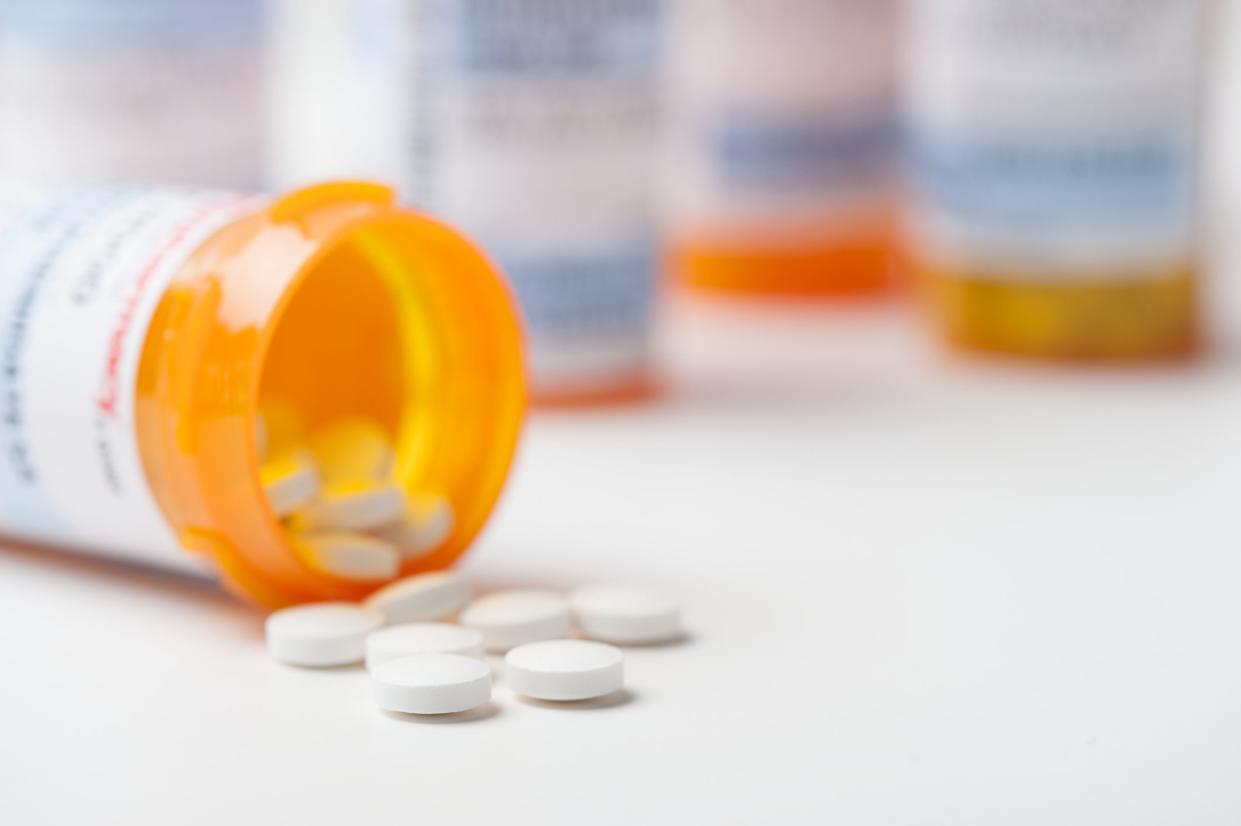5 Ways Drinking Water May Help You Lose Weight
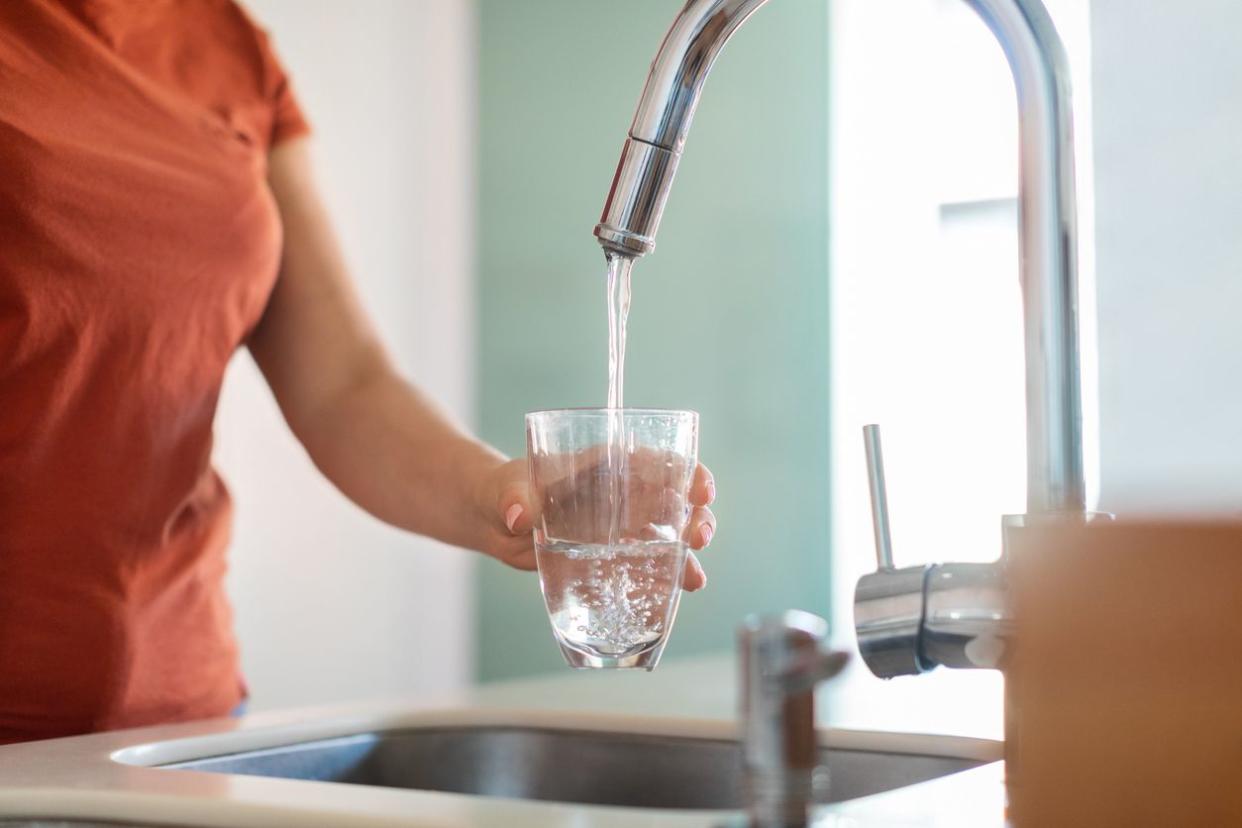
5 Ways Drinking Water May Help You Lose Weight
Does drinking water help you lose weight? Believe it or not, it can. While this might sound too good to be true, there’s some solid science behind it.
But it’s not quite as simple as downing a glass of water or two.
Read on to learn how drinking water can help you lose weight, when you should drink it and how much water you should be aiming for.
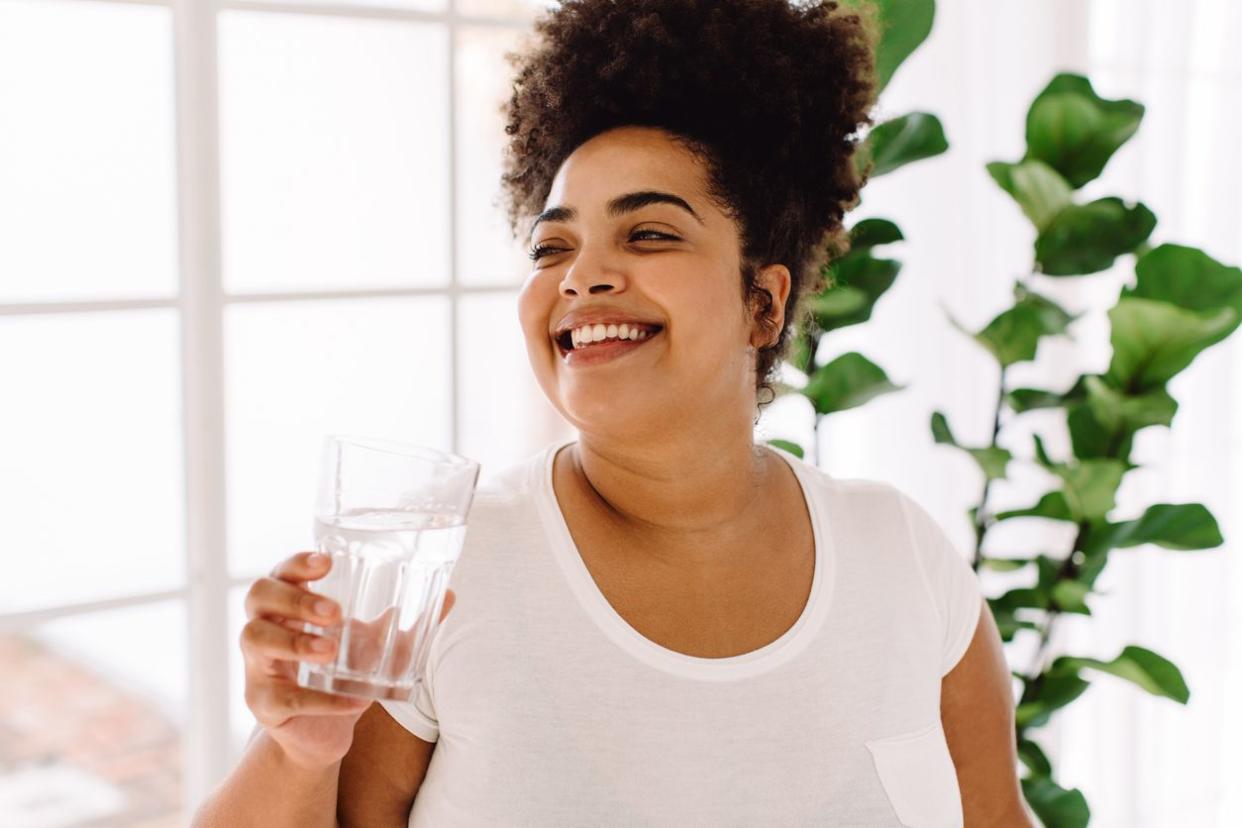
Does Drinking Water Help You Lose Weight?
Yes, drinking water can help you lose weight. Research shows it can suppress appetite, stimulate metabolism, boost fat oxidation, reduce liquid calories and make exercising easier.
A 2014 study had 50 female participants with overweight drink roughly 51 ounces on top of their usual daily water intake. This was divided into about 17 ounces a half-hour before breakfast, lunch and dinner. Participants drank the extra water for eight weeks.
At the end of the experiment, their body weight, body mass index (BMI), body fat and appetite had all decreased.
More recent research has had similar findings. A 2022 review of studies concluded that “preloading water” — drinking water before meals — can promote weight loss.
More specifically, drinking about 17 ounces before sitting down to eat may improve weight loss by two to five pounds over three months. Not bad for the humble glass of water.
So, does drinking a lot of water help you lose weight? It looks like it can!
But why does water help you lose weight, and how much water do you need to drink to lose weight? Read on for answers.
(Related: Ozempic Vs. Metformin)
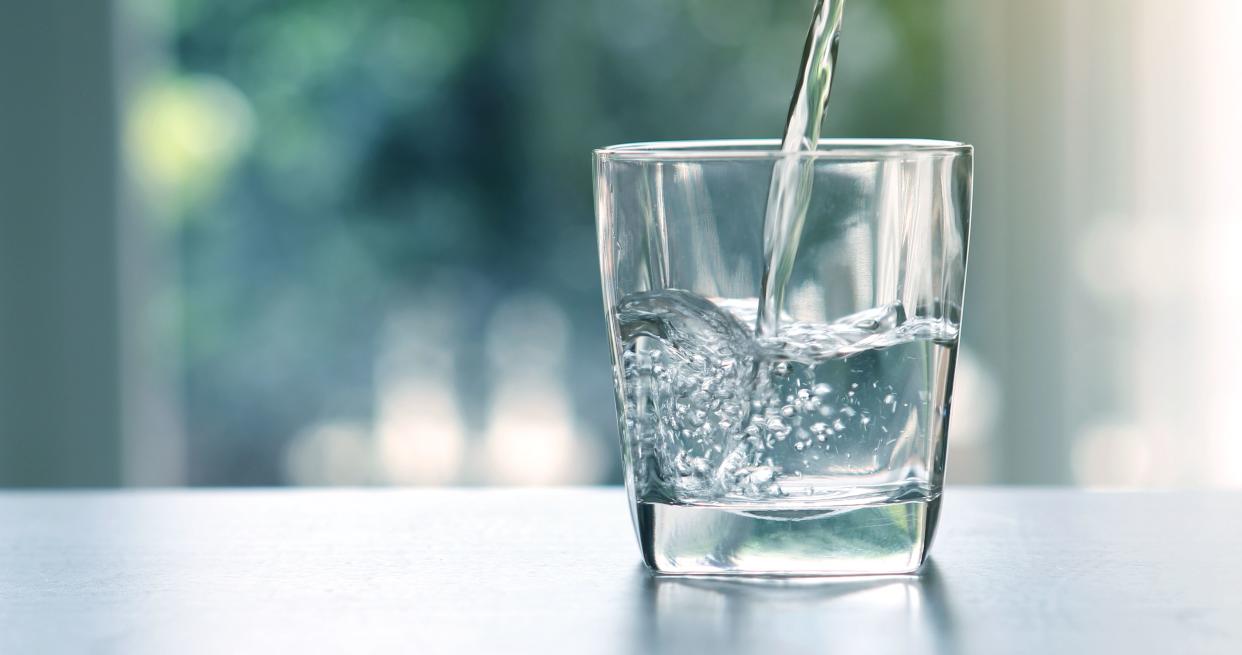
How Does Drinking Water Help You Lose Weight? 5 Ways
It’s clear that drinking more water can lead to weight loss. But how does water help you lose weight, exactly? It works in a handful of ways.
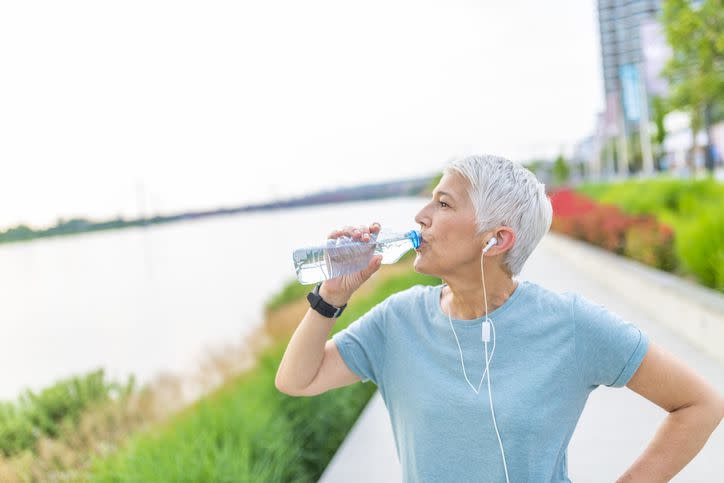
Water Suppresses Your Appetite
Our brains are clever, complex things, but they often mix up the signals for thirst and hunger. When drinking more water, you’re less likely to feel “hunger” that’s actually just dehydration.
Water may also impact hunger hormones, including:
Ghrelin. This is the hormone that signals hunger to the brain.
Leptin. Leptin is an appetite-suppressing hormone.
Insulin. When insulin is imbalanced, you might feel hungry.
Cholecystokinin. This hormone stimulates the digestion of protein and fat.
Glucagon-like peptide-1. Also called GLP-1, this hormone contributes to feeling full.
In simple terms, drinking more water can suppress appetite while helping you feel fuller and more satisfied at meal times. This can lead to eating less, promoting weight loss.
For example, a 2021 study on people with type 2 diabetes found that drinking about 34 ounces of water a day before meals led to eating fewer calories and less fat. Over eight weeks, this resulted in a lower BMI, a smaller waist circumference and greater weight loss compared to the control group who didn’t drink any water before meals.
Drinking water also seemed to reduce levels of copeptin, a protein that — in high levels — is linked to a larger waist circumference, elevated blood pressure, high BMI and obesity.
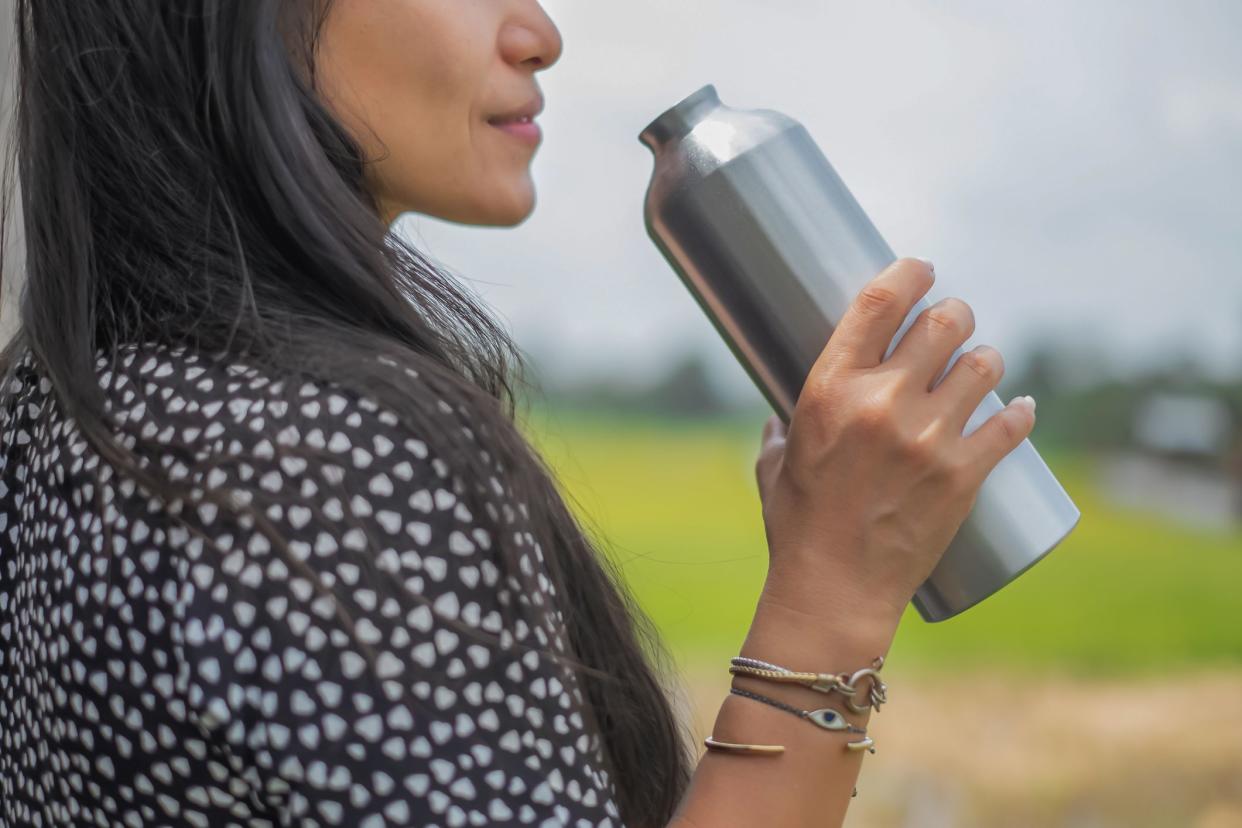
Water Stimulates Your Metabolism and Burns Calories
Does water increase metabolism? Again, it sounds like wishful thinking, but the science is there.
Water may boost thermogenesis (heat production) in the body. This, in turn, increases your metabolic rate, providing you with more energy to move and burn off excess weight.
A small 2003 study with 14 participants found drinking around 17 ounces of water increased metabolic rate by 30 percent. The effect started kicking in 10 minutes after drinking water and reached its peak in 30 to 40 minutes.
In absolute terms, the number of calories burned by doing this wasn’t too great, but on a weight loss journey, every bit can matter. Drinking colder water, it seems, burns more calories, because of the energy that needs to go into heating the water up.
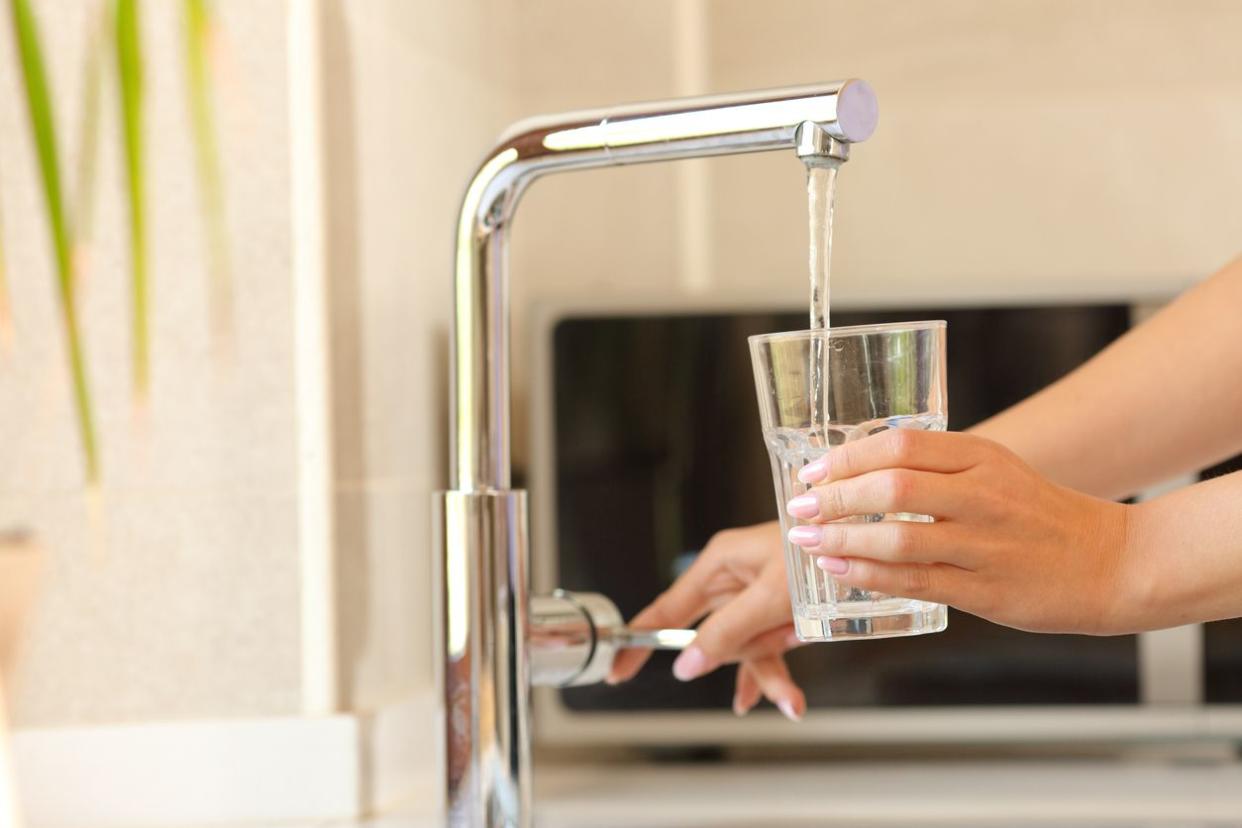
Water Can Increase Fat Oxidation
Water may increase the rate of lipolysis — the breakdown of fat for energy in your body.
It becomes easier for your body to break down the fat in free fatty acids and transport it into mitochondria, which turn nutrients into energy in your cells. This means drinking water may increase fat oxidation, when your body burns fat for fuel.

Water Reduces Your Overall Liquid Calorie Intake
This one’s pretty straightforward. When you’re drinking water, you’re not drinking soft drinks, sugar-laden fruit juices or alcoholic beverages that can contribute to weight gain.
Swapping your usual lunchtime Coke and after-dinner beer for a glass of water is a simple change that cuts calories before you even think about overhauling your diet.
Plus, if you stay hydrated with zero-calorie water, you’re less likely to reach for a high-calorie, sugary drink to quench your thirst.
(Related: Are Diabetes Drugs Safe for Weight Loss?)
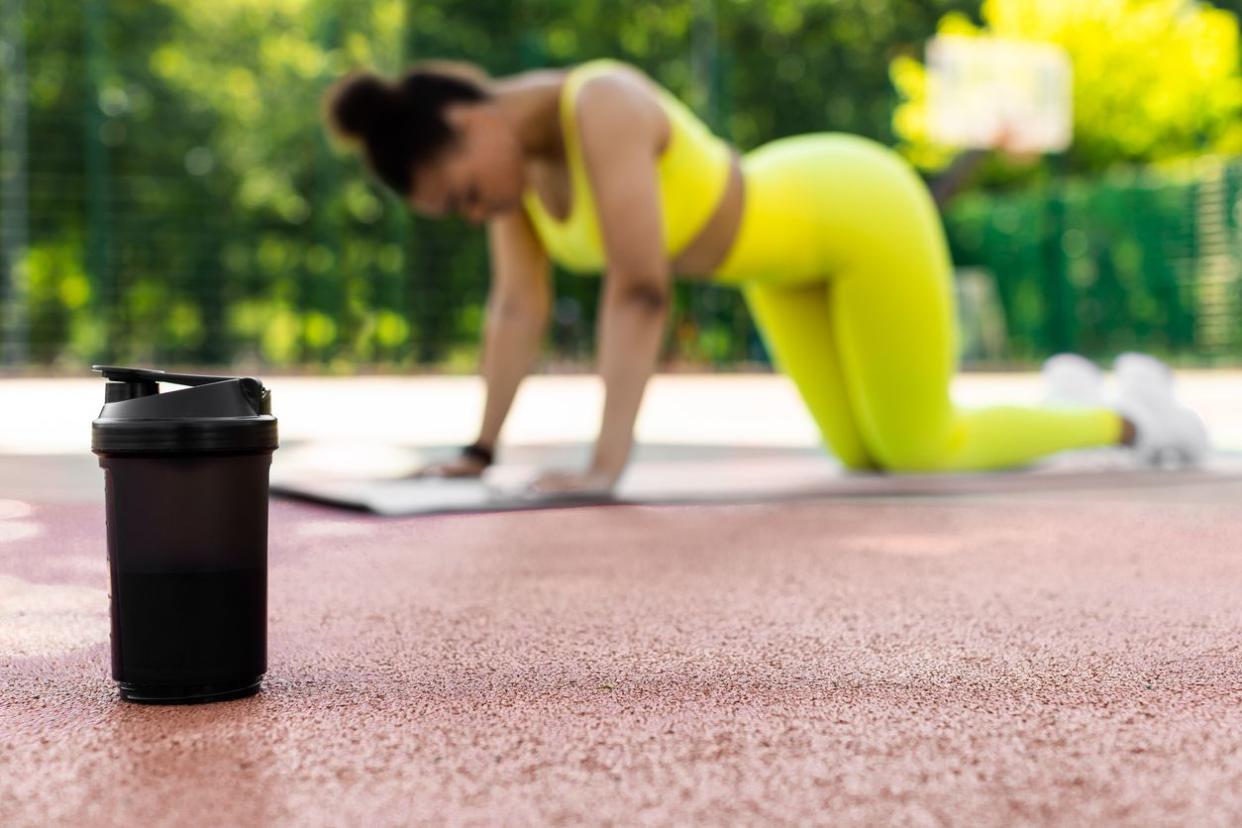
Water Makes Exercising Easier
You might be upping your physical activity if you’re trying to shed a few pounds. Drinking water can help make this lifestyle change easier.
Even mild dehydration can lead to:
Reduced endurance
Reduced motivation
Increased fatigue
Increased perceived effort — your workouts feel harder
Drinking enough water can reverse these effects and reduce the oxidative stress that exercise can cause.
When working up a sweat, you’ll lose more water than usual. So it’s even more important to keep a water bottle nearby and make sure you’re sippin’ on it throughout your workout.
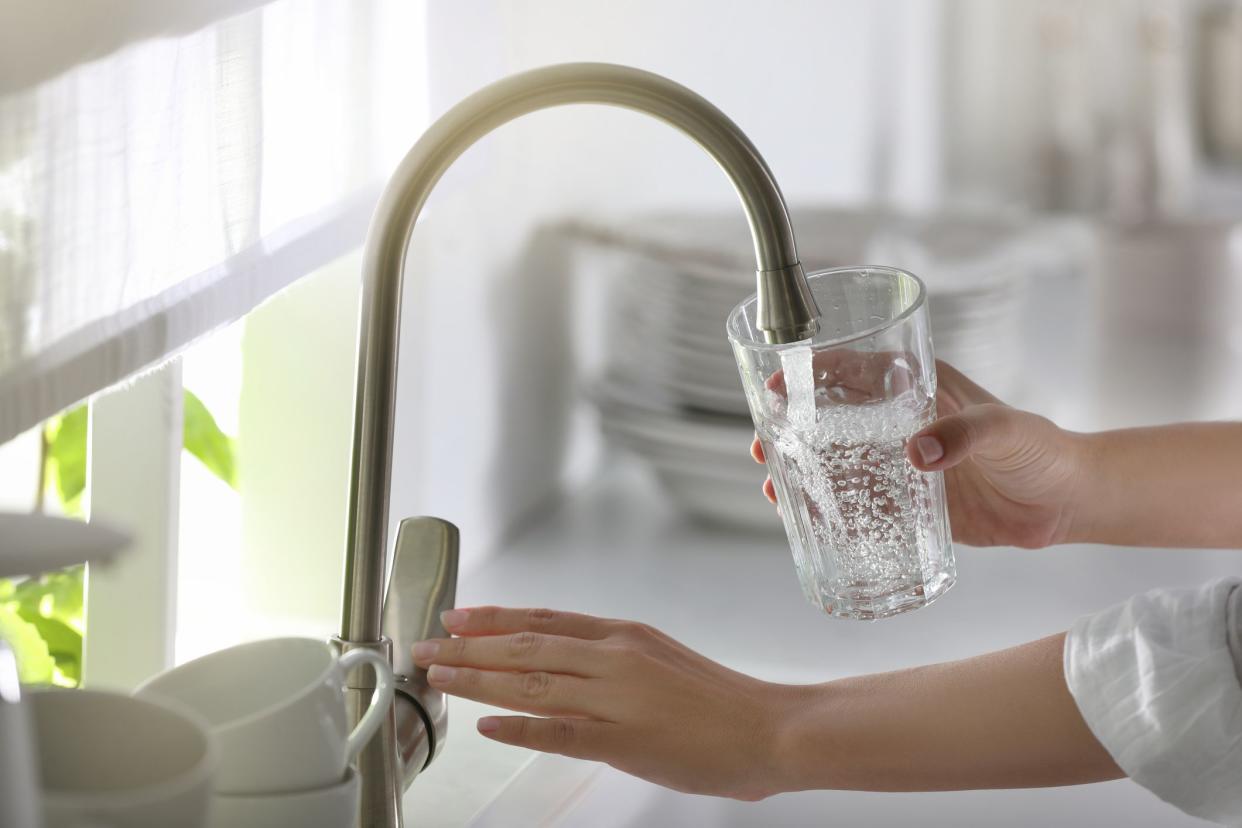
How Much Water Should I Drink to Lose Weight?
You may have heard you should aim for eight glasses of water a day for optimal health. But there’s actually no hard-and-fast rule about how much water you should drink — and that’s even more true when it comes to water for weight loss.
The National Academies of Sciences, Engineering and Medicine recommends about 91 ounces of water a day for women and 125 ounces for men. However, this is total fluid intake from food and drinks — not just glasses of water alone.
Also, it’s not the same for everyone. How much water you need to lose weight depends on factors like your daily activity levels and how hot it is where you live.
And that’s just thinking about water for general health and well-being. How much water you should drink to lose weight might be whatever’s necessary to suppress appetite and reduce calorie intake — or it could all be about timing (i.e., upping your water intake before meals).
More research is needed on that front.
For now, we say don’t worry too much about how much water a day for weight loss is best. Our advice is to drink when you feel thirsty, check that your pee is clear or light yellow (dark yellow signals dehydration) and consider drinking a little extra before meals to see if it affects your hunger and meal satisfaction.
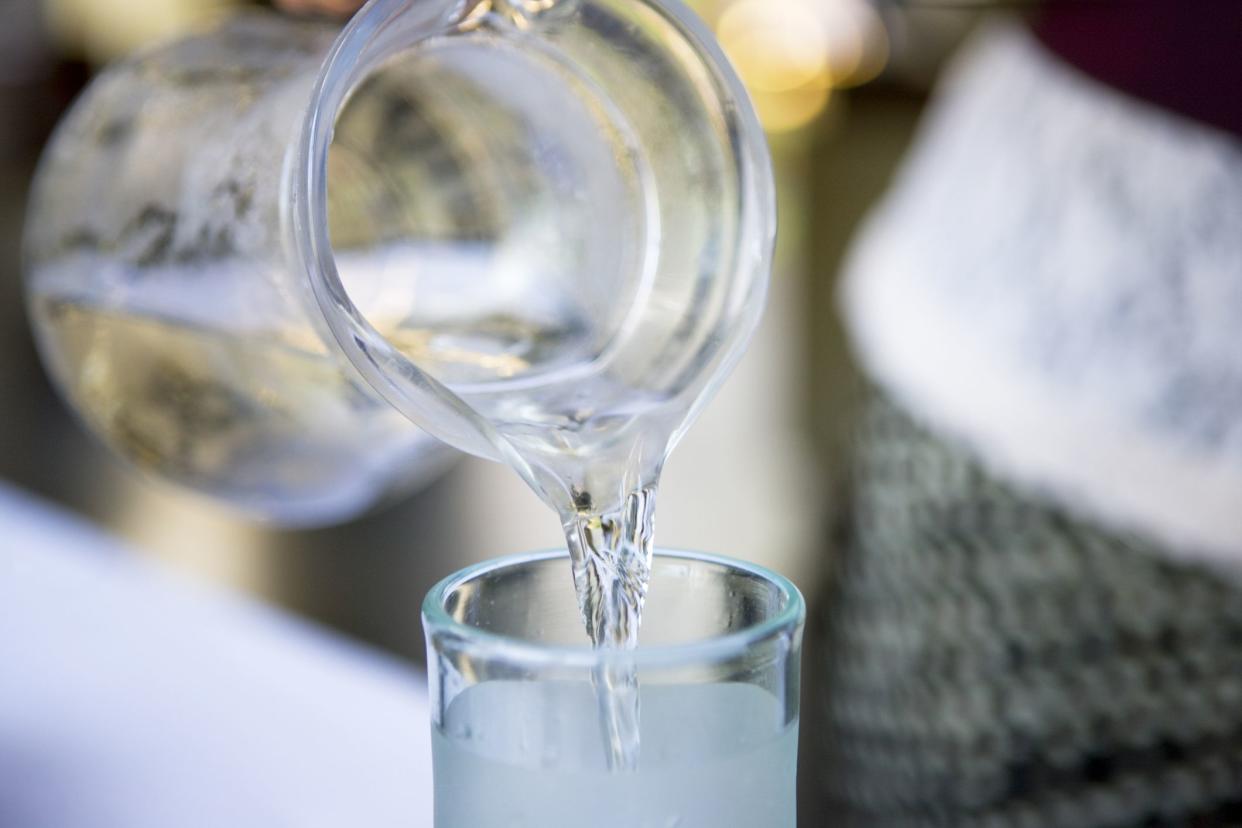
When Should You Drink Water for Weight Loss?
There’s no one best time to drink water for weight loss. That said, research suggests that drinking water before meals could help you eat fewer calories by:
Reducing hunger
Increasing satiety (feeling full)
Try drinking 17 ounces — about a pint glass — of water 30 minutes before meals.
A 2010 study compared eating a low-calorie diet and drinking 17 ounces of water before meals to eating just a low-calorie diet alone. Participants who drank extra water lost over four pounds more than the other group. This resulted in a 44 percent greater decline in weight over the 12-week study.
Outside of meal times, drink plenty of water throughout the day. And avoid waiting until just before bed to get in your daily water intake — otherwise, you’ll be setting yourself up for many middle-of-the-night bathroom trips.
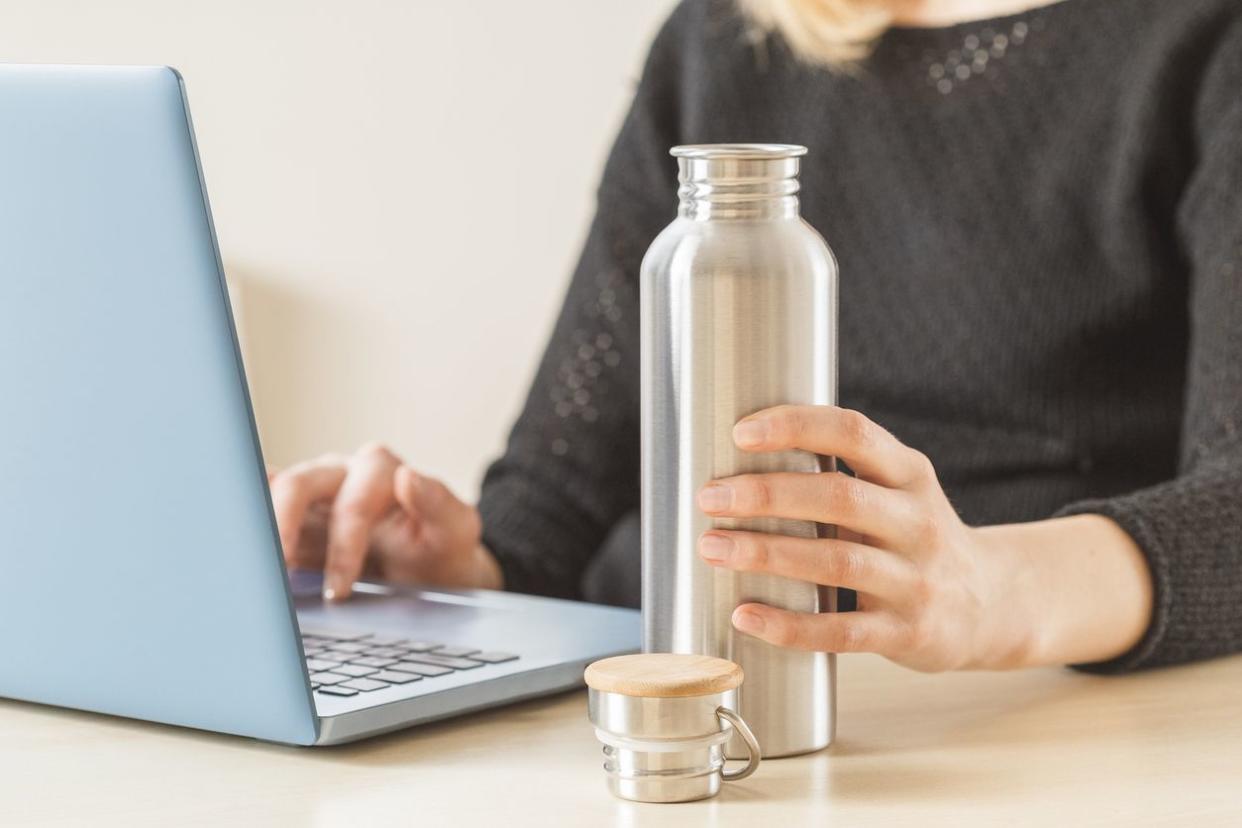
How to Drink More Water
Now that we’ve established that drinking more water could help you lose weight, it’s time to start drinking up.
Here are our tips to increase your water intake:
Carry a water bottle with you everywhere — bonus points if it’s a reusable bottle you enjoy using.
Add a slice of lemon, lime or cucumber to your water if you don’t like the taste of it plain.
Drink water with meals — make it a non-negotiable on your dinner table.
Freeze bottles of water or add ice cubes to your glass to enjoy cold water.
Have a glass or bottle of water on your desk, next to the couch, in your gym bag, etc. Sometimes, you just need the visual cue to drink up.
Set reminders on your phone, download a water-drinking app (yep, those exist) or leave a Post-It note on your bathroom mirror.
Can you lose weight by drinking water? Sure. But water is just one piece of the weight loss puzzle.
Healthy diet, exercise, stress management and adequate sleep are all key to sustainable weight loss. If you decide to up your water intake, don’t forget about the basics.
If you’re looking to lose weight, here’s what you can try alongside drinking more water:
Reducing calories that come from fats and sugars
Increasing fruits and veggies
Eating a variety of lean protein
Getting at least seven hours of shut-eye a night
Getting two and a half hours of exercise throughout the week (or about a half-hour five days a week)
Chat with a healthcare professional for more personalized advice on your weight loss goals. Drinking water may be part of the strategy, but a meal plan, exercise routine, behavioral change tools or weight loss medication could also be useful.

Other Health Benefits of Drinking Water
Does drinking more water help you lose weight? As it turns out, yes, it can. But weight loss isn’t the only benefit of drinking more water.
Water can help boost:
Mental performance and energy. When dehydrated, you may find it harder to concentrate and stay alert. Your short-term memory could take a hit too.
Physical performance. Dehydration can lead to reduced endurance, fatigue and increased perceived effort — not what you want when working out.
Overall health and wellness. Adequate hydration can reduce your chances of kidney stones, constipation, exercise asthma, urinary tract infections (UTIs), high blood pressure and possibly fatal coronary heart disease. It might also lower your risk of developing a headache. Water can even help your hair grow.
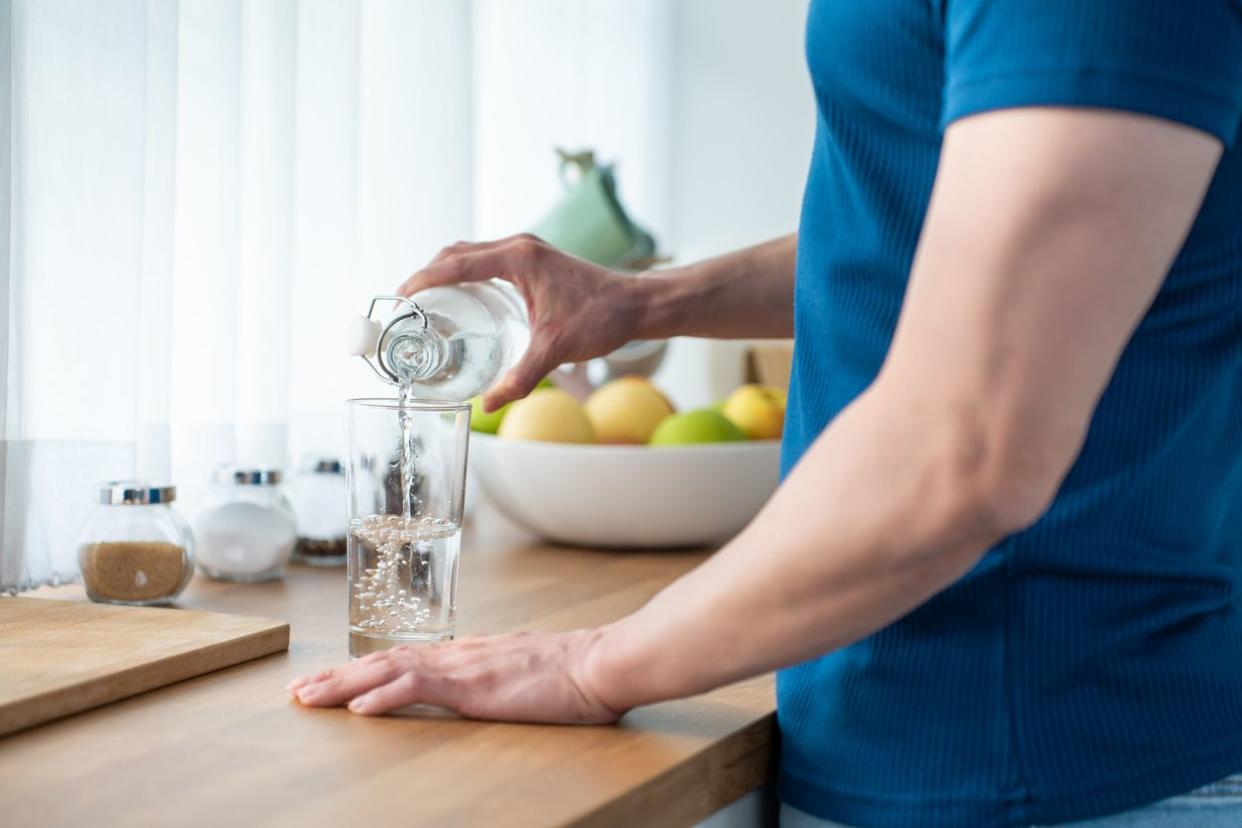
Water for Weight Loss: The Final Verdict
The rumors are true: Drinking water can help you lose weight.
Here’s what you need to know:
Drinking water has multiple benefits. It can reduce hunger, boost metabolism and increase fat oxidation while helping you stick to a workout plan. You might find you’re eating (and drinking) fewer calories when you start upping your water intake.
Drinking water before meals could help you eat less. A rigid water-consumption schedule may not be necessary. Still, you might try a glass or two about 30 minutes before meals. It could suppress your appetite, help you avoid overeating and make you feel more satisfied.
Don’t forget other essential factors for weight loss. If you’re drinking water to lose weight, don’t neglect diet, exercise, stress management and sleep. Weight loss often requires a multi-pronged approach. Don’t be afraid to reach out to a medical professional, dietitian or behavioral therapist for support and guidance.
It seems that good ol’ H2O can help you on your weight loss journey, but other weight loss treatments are out there. We recommend exploring your options to see what techniques might work and following the advice of a healthcare professional.
This article originally appeared on Hers.com and was syndicated by MediaFeed.org.
